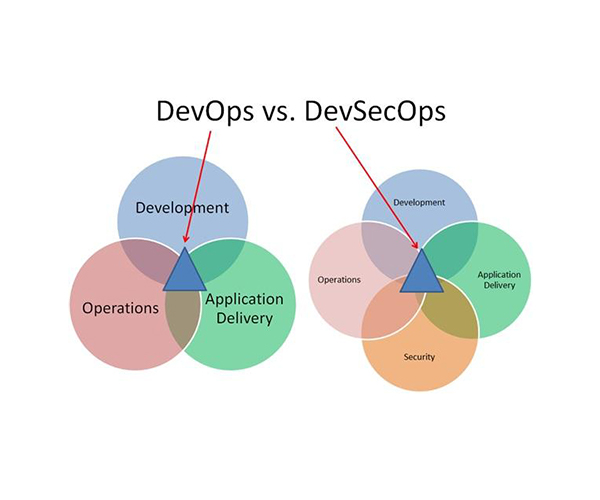
Data Governance Simplified—Everything You Need To Know
January 13, 2022
Nine Tips for Successful Cloud Migration
January 13, 2022
How to Become a DevOps Success Story In Your Industry

In the tech industry, there is a massive demand for DevOps. In case you’ve never heard of it, it’s something that serves to make computer systems more secure and scalable with flexible setups. It is an emerging field, which is becoming more common in tech, but most employers still aren’t fully staffed. That means companies are scrambling to hire anyone who has experience in the subject. With that in mind, here’s a quick and easy way to explore whether embracing DevOps is a good fit for your company or not.
What is DevOps?

DevOps is a software development method to integrate developers and IT operations teams to collaborate on software design, coding, testing, release, and support. DevOps aims to speed up the delivery of new functionality, providing quicker feedback loops to developers to learn from mistakes and constantly improve. DevOps enables reiterating and making changes to a product at an astounding pace. It shortens the product development life cycle drastically and has an incredible effect on customer satisfaction. The following are the fundamental principles that DevOps aims to inculcate into software development:
- Customer-centric Action
- Create with the end in mind
- End-to-End Responsibility
- Cross-functional autonomous teams
- Continuous improvement
- Automate everything you can
Security in the DevOps Model

In a DevOps environment, security is of paramount importance. The team that creates a new service or improvement to an existing service has a responsibility to ensure that the deployment does not adversely affect the entire system’s security. To do this, they need to build security into the development and production phases of the project. DevOps Security, often abbreviated to DevSecOps, is a set of practices that involves integrating information and Cybersecurity with the DevOps software development lifecycle. To optimize for speed, DevOps teams often compromise on the quality of code and information security. Such practices can lead to products being filled with vulnerabilities, such as privileged access management credentials being embedded right in the application, which can be ratted out with sufficient testing. To make the whole process increasingly secure, the company must clearly define roles and responsibilities within teams. The company must integrate security principles directly into CI/CD practices. Keeping in line with AGILE principles, the team must maintain a proactive approach to security.
How does DevOps work?
DevOps is a term that defines a set of practices to integrate the testing and deploying of software. It is a toolset, not a rigid structure. DevOps is a term for a set of techniques to integrate the testing and deploying of software. It’s a toolset, not a rigid structure meant to be followed. The main goal of DevOps is to accelerate and streamline the process of releasing updates to customers.
There are mainly six critical areas of DevOps. These include build and test on the development side and deployment, release, Operations and monitoring on the IT operations side.
Why do enterprises need DevOps?
“DevOps is a concept that originated from the merging of two roles, Development and Operations. The DevOps role is expected to oversee software engineering practices, systems engineering, and project management” . This can be achieved by implementing a Continuous Delivery pipeline and doing operations at the same time. Enterprises must focus on DevOps to provide a delightful user experience in this competitive landscape. To compete effectively, enterprises must be in shape to ship products out quickly, gauge the vital feedback they receive and iterate upon that. Shared ownership across teams can often produce a significantly better quality product. Better quality code and assurance teams can catch bugs in code even before it is shipped to customers, reducing the cost of customer service and bug fixes. It is, in fact, easier to set the KPIs to watch out for and quantify tangible financial contributions to the business and monitor causes of potential risks of revenue loss.
What are the benefits of DevOps?
DevOps has revolutionised the software delivery life cycle (SDLC) by dismantling the classing waterfall model. In the traditional structure, the software, test and maintenance engineering teams were isolated and had no meaningful communication or coordination. This also caused the formation of a hierarchical structure of departments that further complicated the process. This led to delays and miscommunication in user feedback which impacted the user experience severely. Here are some of the benefits that DevOps offers over the classic SDLC:
- Improvement in product quality
- Faster development times
- Continuous software delivery and support
- Quick response to problems/bugs
- Increased focus on innovation
- Stable operating environment
- Transparency amongst teams
- Lower overheads
Create your own DevOps story
Adopting DevOps doesn’t necessarily mean sticking to a particular model. It would help if you created an effective DevOps strategy for your business that might not look anything like another DevOps strategy. The process you create for your company must align well with your business goals. It must take into account the future roadmap for your business. It must help strengthen your team and product development life cycle to ensure constant improvements to the products you’re shipping to users.
How Atidan Technologies can help hire exceptional DevOps engineers for your business

Atidan has access to the largest talent pool in the world with a proven track record of customer satisfaction. Atidan provides result-oriented staffing services so that you can focus on your running business. We have highly experienced recruiters with a strong technical background across North America, EU and APAC time zones. Atidan boasts of high retention rates for all vetted candidates. With over eight years of experience in staffing and global offices in the USA, UK, India, SEA and success stories across various industries, Atidan can take care of all your hiring needs. Finding DevOps engineers that are a good fit for your organization can be made easy with Atidan.

